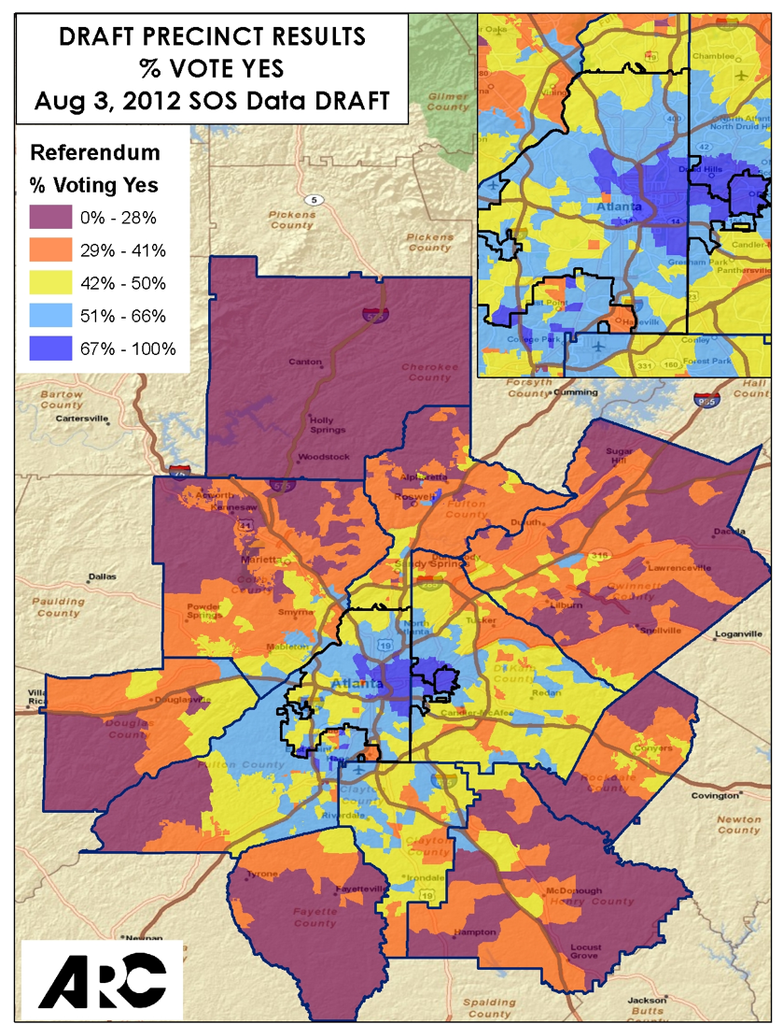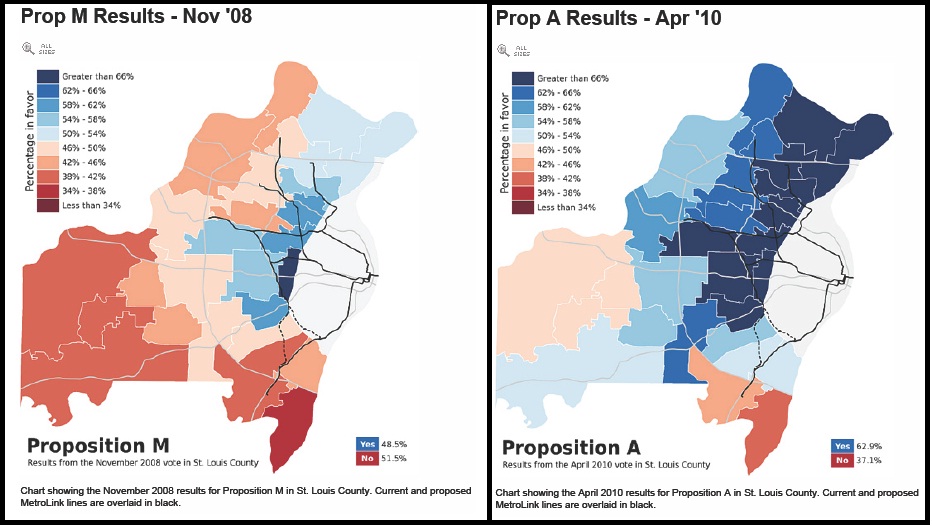
Photo by Shutterstock.
Slate’s business and economics correspondent, Matthew Yglesias, recently penned a paean to L.A.’s newfound love affair with mass transit, only to be pummeled by the L.A. Weekly:
Because L.A. Mayor Antonio Villaraigosa, the president’s longtime Latino pet, has burned through all his shills here at home, he now relies on D.C. journalists to spot his political ambitions. And boy, are they delivering … Earlier this week, Yglesias gave the Los Angeles mayor and his proposed Measure J transportation tax the slobberiest cross-country blow job to date.
Transcontinental oral sex aside, the Weekly has a point: Even as Villaraigosa has championed new light rail lines and bike lanes, L.A. County’s Metro has slashed bus service to some of the city’s most down-and-out neighborhoods.
But take heart, L.A. It could be worse. You could be Atlanta.
Atlanta’s transit agency has been cutting bus service due to budget shortfalls, too. But here, light rail hasn’t fared much better. In July, a ballot measure that would have raised $8 billion for rail and other transportation projects went down in flames.
The good news? Atlanta seems to be an exception to the rule. Transit funding is winning wide approval in other cities around the country this year, as in recent years — and will likely see a few more big wins on ballot budget initiatives in November, including in L.A. If all goes as planned, Angelenos will get the world-class transit system that Mayor Villaraigosa dreams about — and sooner than you might think.
“The overwhelming majority of measures are successful,” says Jason Jordan, director of the Center for Transportation Excellence, a D.C.-based nonprofit that tracks transit-related ballot initiatives. “We were expecting to see approval rates decline back in ’08, with the economic downturn. But rates have actually been improving year over year.”
According to the center’s tally, transit is batting almost 90 percent at the ballot box nationally this year. Voters in Baton Rouge, La., approved a property tax measure in April that will more than double the annual budget for the local bus service. In May, residents of Parkersburg, W.Va., voted to extend a property tax that funds the local transit service. And Michiganders renewed a slew of taxes to fund transit in August.
“It used to be that you might go to the ballot in order to raise matching funds for federal dollars,” Jordan says. “Now, places have to make themselves competitive for federal funds by showing they’ve got skin in the game.”
More than a dozen transit-related initiatives will appear on local ballots in November, including a measure in Orange County, N.C., that would add a half cent to the sales tax to fund transit, and one in Memphis, Tenn., that would increase the cost of a gallon of gas by a penny, raising an estimated $3 to $6 million each year for the Memphis Area Transit Authority.
The big kahuna, however, is Los Angeles, where four years ago voters approved Measure R, a sales tax increase that is expected to raise $40 billion over 30 years for transit, highway, and bus projects. Measure J, which will appear on the ballot this year, would extend the transportation tax another 30 years.
Putting a long-term transit tax in place would allow L.A.’s Metro to borrow the money now and pay it off over the coming decades (there’s a good explanation here), meaning that Angelenos could be living in traintopia in the not too distant future. Under California law, the measure will require a supermajority of at least two-thirds support to pass, but that didn’t stop Measure R from passing in 2008.
So what happened in Atlanta — and could the same forces take down transit initiatives elsewhere? Here it is, mapped:
Pretty clear, right? More than two-thirds of voters in the urban core supported the measure. But the further you went from the city center, the more the opposition won over. By the time you got to the suburbs, people clearly didn’t give a shit about transit.
Jordan says that in many ways, Atlanta’s initiative was destined to fail, both because of historic forces at work in the region, and because the state legislature imposed restrictions on the measure that made it unwieldy. The vote also coincided with the state primaries, in which the most contested races were among Republicans in the exurbs — not people who are inclined to tax themselves for better trains and buses.
For evidence that transit votes don’t always devolve into a simple city-vs.-suburb showdown, Jordan points to St. Louis, where a ballot initiative failed in 2008, but passed on a second attempt, two years later. Here are the maps:
Looks neat, but to me, the message remains the same: Folks in the ‘burbs don’t give a shit about transit. The difference in the second St. Louis election was that fewer of them turned out to vote — and a strong grassroots campaign succeeded in getting pro-transit folks to support the measure. In campaign parlance, the initiative’s backers got their supporters out “without mobilizing their opponents.”
Sound familiar? It should: That’s what President Obama is trying to do when he gives rousing speeches about citizenship — an idea we can all get behind — with only passing mention of the real, yet polarizing issue of the day: the warming climate.
The strategy can work, but it’s still a sad commentary on our country right now: The best hope for progressive reform lies in apathy and/or attrition among right wingers and suburbanites.
L.A. Mayor Villaraigosa has a long way to go in his effort to build a truly functional and just public transportation system for his city, but give him credit for this: He has succeeded in creating a vision that a broad swath of society can get behind. It’s no small feat in a city famously smitten with the automobile, even if it does win him adoration from those pesky writers back East.





